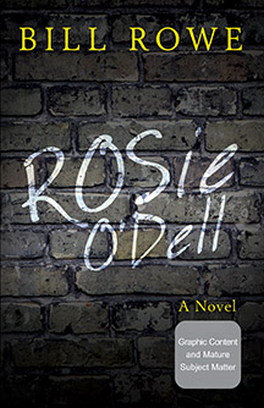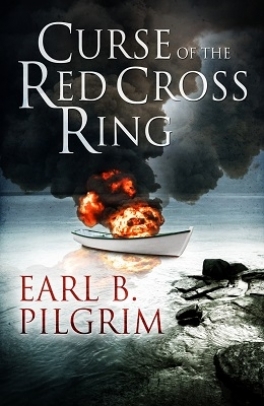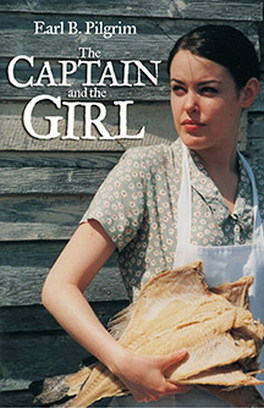Is there really a monster at Twenty Mile Pond? Bill McGill, a lawyer living in St. John’s, has been asking himself this same question for more than twenty years, since the day he saw—or thought he saw—something large and monstrous rise up out of the water and pluck a hapless seagull from the air. Today the memory resurfaces as his niece, Esme, finds herself on the wrong side of the law and charged with murder—one that took place on the shores of that very same pond. With solid evidence against her, and a dogged prosecutor bent on making an example of the young woman, Esme’s fate is sealed. But her uncle refuses to give up hope. Bill McGill must return to the scene of the crime—and the scene of his own long-ago nightmare vision—and learn the truth about what lurks beneath the waves of Twenty Mile Pond. The Monster of Twenty Mile Pond is Bill Rowe’s eighth book. Two of his books, Danny Williams: The War with Ottawa and The Premiers Joey and Frank: Greed, Power, and Lust, have appeared on the Globe and Mail bestsellers lists.
Our seventeen-year-old niece, Esme, was as wilful as she was lovely, my wife and I both agreed, and as unruly as she was bright. She was starting to cause us more woe than our own two kids combined. What had once been just exasperating had become worrisome, especially since her cousin, our own, slightly younger daughter, Molly, was also her loyal and constant companion.
I was inclined to be lenient, even indulgent, with Esme. After the tragedy that had befallen her five years before, I found her behaviour to be—no, not reasonable, but understandable, and my relentless awareness of what she’d been through gave me the desire and strength to bear with her.
That was probably why I considered her first infractions fairly minor. When she was fourteen, for example, she’d been caught smoking with an older girl in the school washroom. She reported to me afterwards, with a contrite smile, that the principal had kicked her out of school for three days. It should only have been for two days, she said, but when he demanded why she had broken the rule of absolutely no smoking by anyone in the school, she’d replied, “I’m not allowed to sneak one in the staff room and blow the smoke out the window like some teachers do.” Bingo, an extra day off for being so smart-alecky.
I told her I was more concerned with her smoking in the first place than with her doing it in school. She replied that I was not to worry; she was not asinine enough to start smoking, and the whole thing had been an egregious—her word—mistake on her part that would not recur. When the principal called me, knowing from her mother, my sister, Maggie, that I was helping with Esme’s parenting, he said that, normally, in these circumstances, she could have been expelled.
“For smoking?” I responded in surprise.
“They weren’t smoking tobacco,” he replied. “The teacher who caught them smelled marijuana, but the girls managed to flush the joint down the toilet.” So the principal used the lack of physical evidence and her good grades, plus her traumatic history, to tone down the punishment. Besides, our daughter Molly had told her teacher that Esme had only been experimenting on herself about the effects of cannabis because she’d read online that the drug could have a calming influence on the kind of muscle spasms that afflicted her mother.
“I have my reservations about Esme’s noble experiment, myself,” the principal went on, “not having just fallen off the turnip truck, but I gave her the benefit of the doubt this one time, anyway.” Yes, we both agreed, normally Esme was a wonderful young lady.
Then, when Esme was fifteen, her mother, Maggie, called me at midnight on a Friday. “Two policemen just brought my daughter home,” Maggie laboured to say, “and deposited her on the doorstep, drunk. If she passes out and throws up, I mightn’t be able to help her.” I released my wife’s amorous hold on me with apologies and regret, and pecked her pursed lips. She patted my shoulder as if she was consoling the loser in a squash tournament, and I hauled on a sweatsuit to drive over to Maggie’s.
Esme was sprawled on the sofa. Seeing me, she lurched up straight and pulled at her skirt, which had ridden well up over her knees; the black tights had a run in one leg which extended to the ankle. Her lipstick was smeared, and her hair, as our father used to describe boisterous young Maggie’s own, was like a birch broom in the fits. Despite her disarray, my wife’s comment of a few weeks ago was still apt: “She’s an alarmingly gorgeous creature.” Two unopened bottles of beer were on the coffee table in front of her. The police had found them in her handbag.
In a low voice and thick words, she protested to me against the overreaction of the police in raiding the party. The complaints they’d received of loud noise, underage drinking, and fights were unwarranted. “And on top of that, Uncle Bill,” she slurred earnestly, “the cops violated everyone’s privacy by taking down our names. This police brutality will go down in the history of North America”—she paused for effect but couldn’t resist a grin—“as the Friday Night Massacre.”
“Not funny,” said Maggie.
“Wasn’t this the same party,” I asked, “that Molly was at? She was home by ten o’clock.”
“Yesh, and she toally”—I think she was trying to say “totally”—“begged me to leave with her when the beer started to arrive, but”—Esme abruptly gained her feet and weaved down the hall, her mouth scrunched tight and her cheeks ballooning. Maggie sighed and started wheeling after her. I placed my hand on her shoulder and said I’d go.
When I entered the bathroom, Esme was on her knees holding on to the sides of the porcelain bowl for dear life and vomiting violently into it. In between paroxysms, her face threatened to sag down into the mess, and I gently held her head back while I flushed. At the sight of her anguished, beautiful young face, my tears began to flow. She seemed to be in such emotional pain.
My mind flashed back to when she was a little girl of eight, a few years before the accident, when she’d stood solidly in front of me and said, “Uncle Bill, Dad says that my name has to go back thousands of years. He says there was a very old language that a lot of languages these days came from—English, Spanish, Russian, and lots of others—languages all the way from Portugal to India and North and South America. He says my name looks like it comes from an old word that meant ‘I am.’ It’s still the same sound, almost, in English and other languages now, years and years later. Esme, I am, is me—get it? Cool, huh?”
“Very cool,” I’d said. “To have stayed the same so long means those sounds must have been something people everywhere wanted to keep forever.”
When she stopped being sick in the bathroom, I left her there to wash her face and went out to sit with my sister. She stayed silent, looking at the floor. “No big deal, Maggie,” I said. “Growing pains.”
“You think?”
“Remember that time,” I said, “—what were you, sixteen?—when you sneaked out your bedroom window two o’clock in the morning, climbed down from the garage roof to meet your friend, and both of you hightailed it off to rendezvous with your boyfriends in Bannerman Park? Do I recall correctly that there was Portuguese brandy involved that you got from some sailors off the White Fleet, and that Dad grounded you for a month and—”
“Okay, okay,” said Maggie, raising her left hand a little, the hand she could move, from the armrest of her wheelchair. “You’ve got a good memory, Billy boy. But look how well I turned out.” She snorted out a laugh.
Esme crept back into the room. “I don’t blame you for laughing,” she murmured. “Because I’ve been really stupid. I’m so sorry, Mom and Uncle Bill. I only meant to have a bit of fun. It won’t happen—”
“I wasn’t laughing at you, Esme,” said Maggie. “There was nothing funny about what you did tonight. And it was beyond really stupid. More like really moronic. And, sweetheart, I know it won’t happen again, because, just as we love you, we know you love us.”
Esme closed her eyes and nodded at her mother.
“Can I help you into bed, Maggie?” I asked.
“No, I will,” said Esme. “I’ll get the medicine.” Maggie’s medication, I knew, was to prevent the painful muscle spasms that would otherwise keep her awake most of the night.
Esme still looked shaky, so I sat in the living room and waited until Maggie’s preparations for bed were completed. It must have taken a half-hour or more, a lot of it spent in the bathroom.
I’d asked Maggie a few times if she should have extra home care for a couple of hours at night before bed, but she always declined. “It’s already costing an arm and a leg, no pun intended, for the six hours I have now. We’ll cut that back soon, too.” And Esme would chime in that she could do the nighttime care because she was usually home from her part-time job before her mother went to bed. No, I could never deny that, usually, Esme was a great girl.
A fantastical novel with a mysterious creature and added thrill of a murder, Rowe creates a connection with the reader through sympathy, mystery and an overall amazing story.-- Tint of Ink --
Rowe is an excellent writer and you can’t really go wrong reading anything by him. This is one of his best.-- The Guardian --
Rowe’s writing shines particularly brightly when his lawyer is chastising the (female) premier or other political discussions are underway, but the entire book is a rollicking ride with likable characters (except the skeets) in familiar settings.-- Northeast Avalon Times --
A well-constructed novel, weaving murder and monsters into a single speculative tale.-- The Packet --























